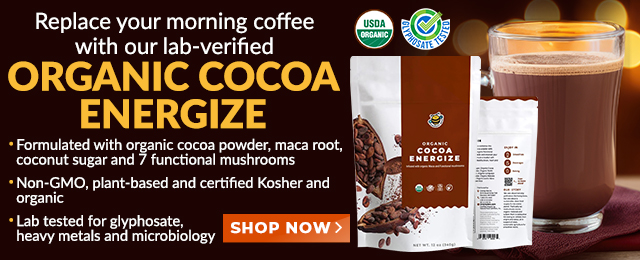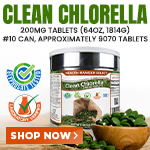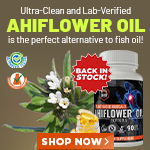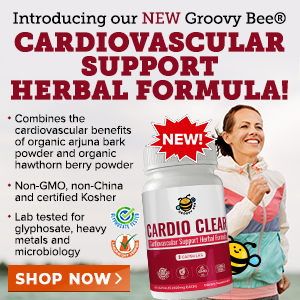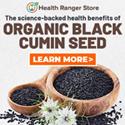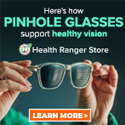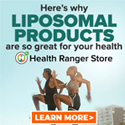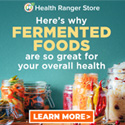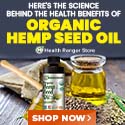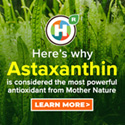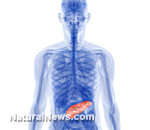
Antioxidant cocktail slashes pancreatic cancer risk by up to two thirds
Wednesday, August 08, 2012 by: John Phillip
Tags: antioxidants, pancreatic cancer, risk reduction
- European Court of Justice: Healthcare professionals who promoted or administered COVID-19 vaccines are CRIMINALLY LIABLE for any harm caused
- Cinnamon plays a critical role in diabetes management
- FRAUD ALERT: Details DEMOCRATS do NOT want you to know about the $40 BILLION wasted on Fed-loaded credit cards cancelled by DOGE
- Scientists unveil breakthrough method to eliminate "Forever Chemicals" from water, transforming waste into graphene
- Newly released JFK files reveal Pentagon's role in creating Lyme disease and covid in the same lab
- Postcard from 1875 highlights smallpox vaccine’s failure: Lessons for today’s COVID-19 response
- Massive egg substitution recall: Bleach contamination sparks nationwide concern
- AI-powered forecasting model proves more accurate than traditional systems at predicting the weather
- Oncologist warns of ‘terrifyingly aggressive’ cancers in children, linked to immune suppression from COVID vaccines
- Preparing for the unthinkable with William Brocius’ “How to Survive the Death of the Dollar”
- Science proves PASSION FRUIT is a powerful medicine for the GUT and the HEART
- When antibiotics are unavailable, natural ANTIMICROBIAL compounds become essential first line defenses against infection
- The NIH reckoning: Battling censorship and restoring free speech in health research
- EPA reconsiders Obama's CO2 “Endangerment Finding” - could unleash American energy freedom
- Israel's war on Gaza's healthcare: Over 1,400 medical workers killed in attacks
- Exclusive: Microscopic analysis suggests unknown biological contaminants falling from the sky
- Israeli forces execute Gaza medics, bury them in mass grave in Rafah
- Nature's cold-fighting arsenal: Immune-boosting foods and healing recipes you need now
- Newly released JFK files reveal Pentagon's role in creating Lyme disease and covid in the same lab
- Kiss Your Genetic Privacy Good-Bye! 23andMe Gets Green Light to Sell Your Intimate Genetic Details to Anyone They Want
- Oncologist warns of ‘terrifyingly aggressive’ cancers in children, linked to immune suppression from COVID vaccines
- Analysis: The coming economic collapse, a mass uprising and Trump's three secret weapons to halt the growing revolt
- European Court of Justice: Healthcare professionals who promoted or administered COVID-19 vaccines are CRIMINALLY LIABLE for any harm caused
- Dr. Suzanne Humphries makes bombshell appearance on Joe Rogan podcast, exposing vaccine industry deception back to POLIOMYELITIS
- Woman contracts WORLD'S DEADLIEST VIRUS after unknowingly being given the WRONG VACCINE
- NIH study, buried for decades, reveals that Flu Shots INCREASE elderly deaths, not prevent them
- Sugar-free deception: Artificial sweeteners hijack hunger signals, fuel obesity epidemic, study warns
- CDC finally halts $11 billion COVID funding scam as health officials admit the ‘pandemic’ was a fraud
- AI weather model outperforms traditional forecasts, boosts accuracy by 20%
- Black cumin seed oil emerges as a powerful ally against breast cancer and chronic inflammation
- Musk targets “strangely wealthy” lawmakers in DOGE probe, names Pelosi, McConnell, Schumer
- COVID-19 scandal linked to CANCER SURGE: Billionaire researcher sounds alarm
- “Independent” anti-Russia outlet MEDUZA faces COLLAPSE as US funding dries up
- The Health Ranger releases “Vaccine Zombie” song and music video, using AI-animated zombies for the music video
- DARPA: The shadowy innovator behind the world’s most advanced military technologies
- Britain’s descent into police state censorship: Parents raided for questioning their daughter’s school system online
- Newly released JFK files reveal Pentagon's role in creating Lyme disease and covid in the same lab
- California's social media censorship law struck down: A victory for free speech or a threat to online safety?
- EPA advisor admits the agency is funneling billions to climate groups ahead of Trump’s return to White House
- The Health Ranger releases “Vaccine Zombie” song and music video, using AI-animated zombies for the music video
- Dr. Mike Yeadon releases 15-minute testimony - WATCH - about genocidal intent of COVID “vaccines”
- Florida takes a stand: DeSantis proposes permanent ban on mRNA vaccine mandates
- Mike Adams releases country western hit single: Goin’ Back in Time is Comin’ Home
- Rep. Nancy Mace introduces bill to ban biological males from female facilities on federal property
- Unpacking the Lies That We’ve Been Fed – new song and music video released by Mike Adams, the Health Ranger
- “Why we influenced the 2020 elections”: Facebook files reveal the coordinated effort to bury the Hunter Biden laptop story
- House Intelligence Committee calls for the ARREST and PROSECUTION of Dr. Anthony Fauci
- Sugarcane extract superior to cholesterol-lowering drugs?
- The pandemic as a tool for INDOCTRINATION: Understanding “The Indoctrinated Brain” by Dr. Michael Nehls
- Survival 101: Effective EMF blocking techniques
- Mike Adams releases music poetry sensation: A Child of God
- Peter Rost exposes Big Pharma corruption in his book “The Whistleblower: Confessions of a Healthcare Hitman”
- Migrants are taking advantage of recent hurricanes to scam residents and loot their homes
- Michigan sheriff announces criminal investigation into 2020 election crimes, Dominion Voting Systems
- Red Cross issues warning to stop blood plasma donations from vaccinated people
- Scientists confirm: GENIUS brain function can be spontaneously unleashed in humans without any apparent cause
- EPA advisor admits the agency is funneling billions to climate groups ahead of Trump’s return to White House
- HYSSOP: What research reveals about the health benefits of this ancient holy herb
- Two containers with completed ballots fall out of truck in Florida
- Fully vaccinated about to see “tsunami” of illness and death, warns virologist
- Global leaders unite to clamp down on “misinformation” with UN-backed Cascais Declaration
- BREAKING: 2025 NDAA authorizes mandatory military draft of WOMEN across America… as Pentagon pursues global NUCLEAR war with both Russia and China at the same time
- Michael Yon warns of a ZIONIST TAKEOVER in Trump’s second administration
- Ozempic and Wegovy weight loss drugs are injectable LIZARD VENOM PEPTIDES that may unleash a devastating wave of organ failure… side effects align with symptoms of SNAKE BITES
- BOMBSHELL: DNA testing kits are a SCAM to develop ethnic-specific bioweapons
- Israeli soldiers accused of even more torture and abuse in the West Bank
- These 13 countries just signed an agreement to engineer a global FAMINE by destroying food supply
- NASA admits that climate change occurs because of changes in Earth’s solar orbit, and NOT because of SUVs and fossil fuels
- Newly released JFK files reveal Pentagon's role in creating Lyme disease and covid in the same lab
- RFK Jr. clears key hurdle: Sen. Susan Collins backs controversial HHS nominee, signaling a new era for health policy
- Sermon 30: How Jesus reveals Caesar’s FAKE CURRENCY and FALSE AUTHORITY
- Coriander seeds: Ancient medicine backed by modern science
Researchers publishing the results of a ground breaking study in the British Medical Journal, GUT found that increasing dietary intake of the antioxidant vitamins C, E, and selenium could help cut the risk of developing pancreatic cancer by up to two thirds. Although the study is observational in nature and can only suggest an association, not a cause-and-effect relationship, researchers believe following a diet with optimal intake of the nutrient trio could prevent eight percent of pancreatic cancer cases.
Dietary antioxidant trio dramatically lowers the risk of developing pancreatic cancer
To conduct the study, researchers tracked the health of more than 23,500 individuals, aged 40 to 74 years who had entered the EPIC study between 1993 and 1997. Participants completed a comprehensive food diary, detailing the types and amount of every food they ate for seven days, as well as the methods they used to prepare it. Dietary nutrient values were calculated using a specially designed computer program.After 10 years, 49 participants (55 percent of whom were male) had been diagnosed with pancreatic cancer. By 2010, the number of participants diagnosed with pancreatic cancer increased to 86 (44 percent were men). Due to the extremely high mortality rate associated with this invasive form of cancer, patients averaged a six month survival rate after diagnosis. The nutrient intakes of those diagnosed with the disease were compared with nearly 4,000 healthy people to see if there were any differences.
Researchers found that a weekly intake of selenium in the top 25 percent of consumption roughly halved their risk of developing pancreatic cancer compared with those whose intake was in the bottom 25 percent. Participants with the highest intake of all three nutrients (vitamins C, E, and selenium) were 67 percent less likely to develop pancreatic cancer than those who were in the bottom 25 percent. Dietary antioxidants are the cornerstone of cancer prevention and must be consumed daily from a variety of freshly prepared foods to dramatically limit the risk of pancreatic cancer and other deadly, chronic diseases.
Sources for this article include:
http://gut.bmj.com
http://www.sciencedaily.com/releases/2012/07/120723193203.htm
http://www.medicalnewstoday.com/articles/248152.php
http://www.medpagetoday.com/HematologyOncology/OtherCancers/33889
About the author:
John Phillip is a Certified Nutritional Consultant and Health Researcher and Author who writes regularly on the cutting edge use of diet, lifestyle modifications and targeted supplementation to enhance and improve the quality and length of life. John is the author of 'Your Healthy Weight Loss Plan', a comprehensive EBook explaining how to use Diet, Exercise, Mind and Targeted Supplementation to achieve your weight loss goal. Visit My Optimal Health Resource to continue reading the latest health news updates, and to download your copy of 'Your Healthy Weight Loss Plan'.
Antioxidants at FETCH.news
Get independent news alerts on natural cures, food lab tests, cannabis medicine, science, robotics, drones, privacy and more.
Take Action: Support Natural News by linking to this article from your website
Permalink to this article:
Embed article link: (copy HTML code below):
Reprinting this article:
Non-commercial use OK, cite NaturalNews.com with clickable link.
Follow Natural News on Facebook, Twitter, Google Plus, and Pinterest
Science News & Studies
Medicine News and Information
Food News & Studies
Health News & Studies
Herbs News & Information
Pollution News & Studies
Cancer News & Studies
Climate News & Studies
Survival News & Information
Gear News & Information
News covering technology, stocks, hackers, and more



"Big Tech and mainstream media are constantly trying to silence the independent voices that dare to bring you the truth about toxic food ingredients, dangerous medications and the failed, fraudulent science of the profit-driven medical establishment.
Email is one of the best ways to make sure you stay informed, without the censorship of the tech giants (Google, Apple, Facebook, Twitter, YouTube, etc.). Stay informed and you'll even likely learn information that may help save your own life."
–The Health Ranger, Mike Adams











